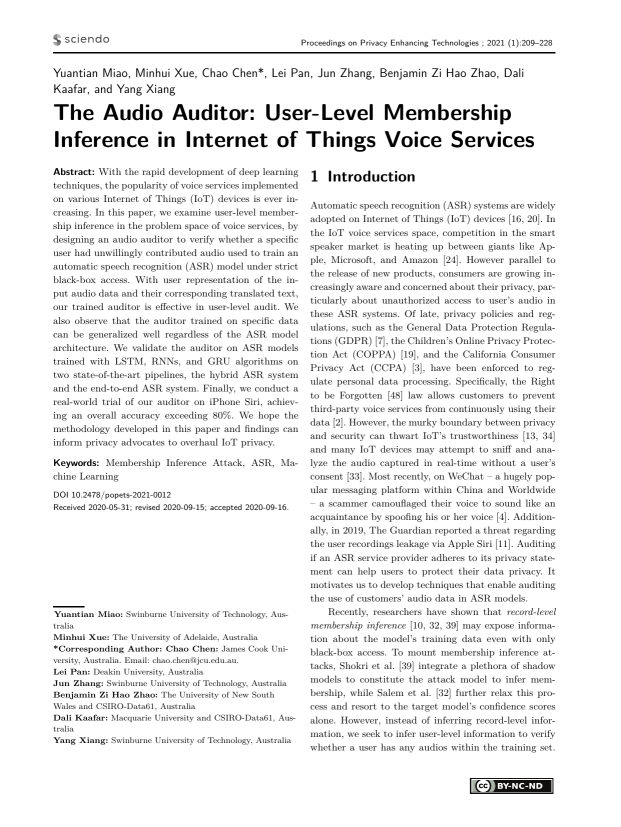The Audio Auditor: User-Level Membership Inference in Internet of Things Voice Services
Authors: Yuantian Miao (Swinburne University of Technology, Australia), Minhui Xue (The University of Adelaide, Australia), Chao Chen (James Cook University, Australia.), Lei Pan (Deakin University, Australia), Jun Zhang (Swinburne University of Technology, Australia), Benjamin Zi Hao Zhao (The University of New South Wales and CSIRO-Data61, Australia), Dali Kaafar (Macquarie University and CSIRO-Data61, Australia), Yang Xiang (Swinburne University of Technology, Australia)
Volume: 2021
Issue: 1
Pages: 209–228
DOI: https://doi.org/10.2478/popets-2021-0012
Abstract: With the rapid development of deep learning techniques, the popularity of voice services implemented on various Internet of Things (IoT) devices is ever increasing. In this paper, we examine user-level membership inference in the problem space of voice services, by designing an audio auditor to verify whether a specific user had unwillingly contributed audio used to train an automatic speech recognition (ASR) model under strict black-box access. With user representation of the input audio data and their corresponding translated text, our trained auditor is effective in user-level audit. We also observe that the auditor trained on specific data can be generalized well regardless of the ASR model architecture. We validate the auditor on ASR models trained with LSTM, RNNs, and GRU algorithms on two state-of-the-art pipelines, the hybrid ASR system and the end-to-end ASR system. Finally, we conduct a real-world trial of our auditor on iPhone Siri, achieving an overall accuracy exceeding 80%. We hope the methodology developed in this paper and findings can inform privacy advocates to overhaul IoT privacy.
Keywords: Membership Inference Attack, ASR, Machine Learning
Copyright in PoPETs articles are held by their authors. This article is published under a Creative Commons Attribution-NonCommercial-NoDerivs 3.0 license.

